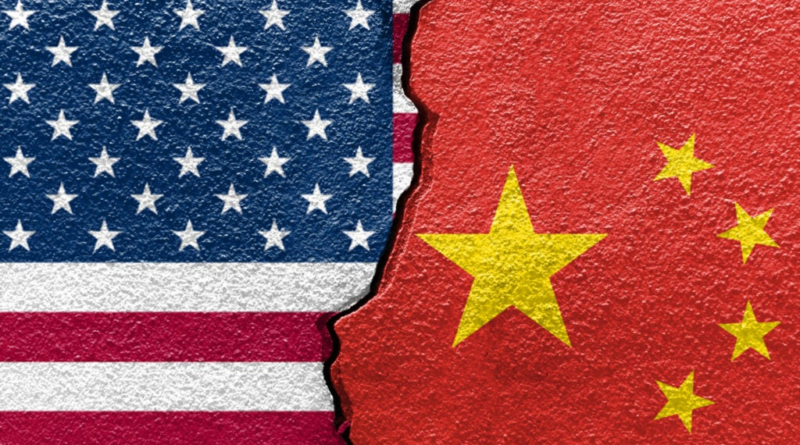China's 'Decapitated' Chip Sector Is Thrown $50B Lifeline – Benzinga
U.S.-China relations during the Biden era have been marked by efforts from both sides to undermine each other's access to the most advanced semiconductors and other key technologies.
Chips are today universally understood as the gateway technology to cutting edge developments in every field that matters when it comes to geopolitical power, including consumer electronics, military equipment and artificial intelligence.
The Chinese government has announced a new $47.5 billion public fund aimed at fueling the country's self-reliance in manufacturing advanced chips.
Biden's Moat Around Semiconductors: About one year-and-a-half ago, one tech pundit called a move by Biden to bar U.S. citizens from collaborating with Chinese chip companies "a serious act of industry-wide decapitation."
The quote comes from Chinese developer and influencer Lidang, reacting to a measure that could have U.S. citizens risk losing their citizenship if they continue to work for, or offer services to, a black list of Chinese semiconductor companies.
“This is what annihilation looks like: China's semiconductor manufacturing industry was reduced to zero overnight. Complete collapse. No chance of survival,” said Lidang at the time.
But now, China appears set on gaining semiconductor independence.
Biden's move was one in a long list of measures by his administration to both boost domestic production of semiconductors and build a blockade against China's advances.
So far, incentives for the U.S. semiconductor industry have topped the $32 billion as part of Biden’s far-reaching CHIPS Act, with over $75 billion more coming in the form of loans and tax breaks.
The initiative aims to enhance U.S. manufacturing, reduce reliance on Asian production, and strengthen the administration’s standing ahead of the presidential election.
The semiconductor industry was selected as part of Biden's efforts to bolster certain sectors where the U.S. aims to strengthen its influence and leadership in the coming decades.
The U.S. has also raised big walls around China's access to key technologies, including export bans on the most advanced chips, like NVIDIA Corp's NVDA H100, which is vital for AI training.
Without access to key equipment, China risks lagging behind in other technologies that might make its business competitiveness vulnerable in the near future.
China Is Not Sleeping At The Wheel: It was recently reported that China plans to significantly exceed U.S. investments in semiconductors, potentially reaching up to $142 billion, as part of its strategy to achieve independence from U.S. and allied interests.
The latest announcement in this trend is the establishing of China's largest-ever semiconductor investment fund valued at 344 billion yuan ($47.5 billion). The fund became incorporated last week with funding from the country's central government and several state-owned banks.
Read also: ASML and Taiwan Semi Prep for Potential China-Taiwan Conflict with Remote Shutdown Feature
Big Fund III is a push by the Chinese government to gain complete independence from the global semiconductor supply chain, stepping over the many hurdles laid down by the U.S. government and its influence over commercial allies including The Netherlands, Germany, Japan and South Korea.
The growth of China’s domestic chip industry has reportedly lagged behind the collaborative efforts of the achievement of companies with full access to key technologies including Taiwan Semiconductor Mfg. Co. Ltd. TSM, Samsung, Advanced Micro Devices, Inc. AMD and Intel Corp INTC
Yet the country recently surprised the tech community when Chinese tech giant Huawei released its latest smartphone in April, packing a fast chip made with homemade parts.
In March, Chinese Premier Xi Jinping hinted that his country no longer needs ASML Holding NV ASML machines to produce semiconductors. Dutch company ASML is the only in the world currently producing machines that use extreme ultraviolet lithography to build advanced semiconductors.
With influence from the U.S. government, the Netherlands recently raised restrictions on ASML, the country's largest company, barring it from exporting advanced machinery to some Chinese companies.
Benzinga's Take: With recent efforts, the Chinese chip industry could be navigating around its previously foretold annihilation, though the Asian giant still faces the massive challenge of replacing foreign-made components in every step of the supply chain, a monumental task that is still far from completed.
Now read: Nvidia ‘Preparing For The Worst’ As The Chipmaker Reportedly Cuts Prices Of Its Flagship AI Chips In China Amid Intensifying Competition From Huawei
Photo: Shutterstock
© 2024 Benzinga.com. Benzinga does not provide investment advice. All rights reserved.
Trade confidently with insights and alerts from analyst ratings, free reports and breaking news that affects the stocks you care about.

